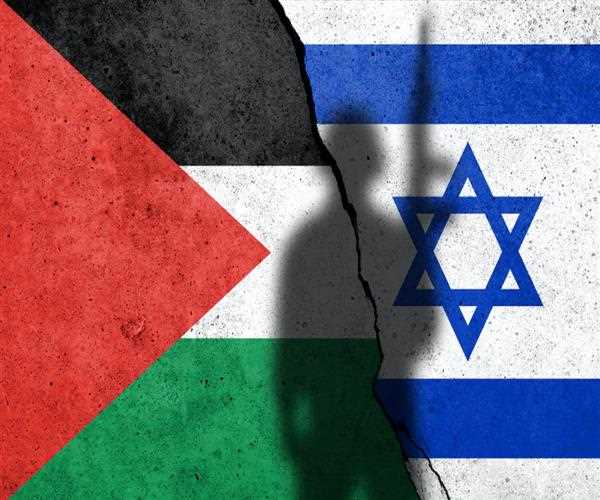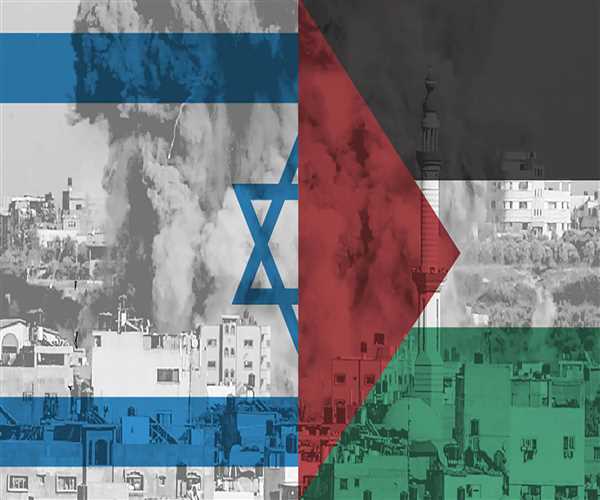
27-Oct-2023 , Updated on 10/30/2023 12:15:34 AM
Is the situation of Israel- Palestine similar to cold war?
Indeed, the Israel-Palestine conflict can be likened to a state of a cold war.

Image Source- USA TodayThe Jewish-Palestinian conflict was significantly impacted by the cold war.
The Soviets were determined to expel the US/UK from any possible territory, hence their endorsement of Arab leaders with anti-US/UK views, regardless of their political affiliations, often labeling themselves as "anti-imperialists." As a result, these leaders adopted a firm stance towards Israel, leading the Palestinians to believe that the Arab nations might actively engage in their conflict. This is not merely a random occurrence; there is a distinct reason that has led to this outcome.
In the 60s and 70s, both the USSR and China believed that by employing effective guerrilla tactics, similar to those used to drive the US out of Vietnam, they could undermine Israel's strength. Therefore, they played a crucial role in providing financial support, weaponry, and training to the Palestinian guerilla groups . That continued until the PLO was expelled from Jordan in 1970 and Lebanon in 1982.
Following the conclusion of the cold war, Iran has emerged as the primary backer of the Palestinian guerrilla factions.
Historical context
The Israel-Palestine conflict originated from the British's role in endorsing both Israeli and Palestinian states through the Balfour Declaration in 1917, and has continued to persist until the present due to the influence of the Cold War. The Cold War had a significant influence on the Arab-Israeli conflict, comprising two distinct phases. Initially, an unexpected collaboration between the United States and the USSR emerged, both supporting the establishment of a sovereign Israeli nation.
During the years 1947-1949, the USSR and the United States jointly endorsed the United Nations' Partition Resolution. This resolution officially recognized Israel as a sovereign nation, bestowing upon it 55 percent of the disputed land, while anticipating that the remaining 45 percent would form a future Palestinian state. Israel engaged in its inaugural conflict and emerged victorious against nearby nations that opposed Zionism, following the rejection of the partition plan by the Palestinians.
Israel achieved considerable success in this domain partly due to its establishment of crucial partnerships with both of the newly appointed global powers. Conversely, Palestine encountered significant obstacles in gaining backing from major world powers, as highlighted by Middle East expert Rashid Khalidi. Consequently, this hindered their capacity to oppose the Zionist movement , which enjoyed support from a superpower.
Therefore, due to the Cold War, the United States and the Soviet Union made a concerted effort to shape regional conflicts for their own benefit, even if it meant disregarding the interests of those directly involved. The Arab-Israeli conflict experienced the influence of Cold War competition, which led to Israel's decisive success after partition, as well as the resurgence of hostilities towards Israel in 1967.
Despite the conclusion of the Cold War, the ongoing alliance between the United States and Israel still significantly influences political developments in the region, as demonstrated by President Trump's recent statement and the resulting demonstrations in the Middle East.
The United States and the USSR strategically undermined internal politics and international relations in the Middle East to establish themselves as dominant powers, gaining influence, resources, and prestige. This was done through manipulation, backstabbing, and provocation. The repercussions of these actions in Israel and Palestine are constantly evolving. Although the Israeli-Palestinian conflict has always been intricate, it is undeniable that the Cold War greatly contributes to the ongoing relevance of this conflict worldwide.
The developments on October 7, which indicated a move towards relaxation, were unexpected to numerous analysts considering the prevailing conditions in the Middle East during 2023. The China-mediated deal in March 2023, where Saudi Arabia and Iran vowed to reduce tensions, greatly impressed optimists.
The agreement appeared to bring an end to the Cold War between the two countries that had persisted for approximately ten years, contributing to tensions and conflicts in Syria, Iraq, Lebanon, and Yemen. However, the divisions between Iran and its enemies persisted, as evidenced by the Hamas attack in October 2023.
The tension between Saudi Arabia and Iran significantly intensified starting from 2015. Saudi Arabia, along with other countries aligned with the West like Israel and the UAE, mainly pointed to Iran's nuclear program as a potential military threat. Iran's growing influence in the region, bolstered by backing of groups opposed to the US, Israel, and Saudi Arabia such as Hezbollah in Lebanon, and its possession of missiles that could endanger neighboring nations, were also factors attributed to Iran.
Saudi Arabia is against Iran's efforts to extend its influence, particularly in Yemen, where Iranian-supported Houthi rebels captured the city of Sanaa in 2014 and subsequently gained control over significant portions of the nation.
Hamas seems to desire a broadening of the confrontation to Israel's northern frontier, where the considerably mightier Hezbollah poses a similar threat to Israel, mirroring the danger Hamas presents in the southern region. Despite initially appearing as though Iran and Hezbollah had no intention of engaging in war with Israel, the overall situation can be compared to a cold war.

SEO and Content Writer
I am Drishan vig. I used to write blogs, articles, and stories in a way that entices the audience. I assure you that consistency, style, and tone must be met while writing the content. Working with the clients like bfc, varthana, ITC hotels, indusind, mumpa, mollydolly etc. has made me realized that writing content is not enough but doing seo is the first thing for it.
Comments
Join Our Newsletter
Subscribe to our newsletter to receive emails about new views posts, releases and updates.
Copyright 2010 - 2026 MindStick Software Pvt. Ltd. All Rights Reserved Privacy Policy | Terms & Conditions | Cookie Policy